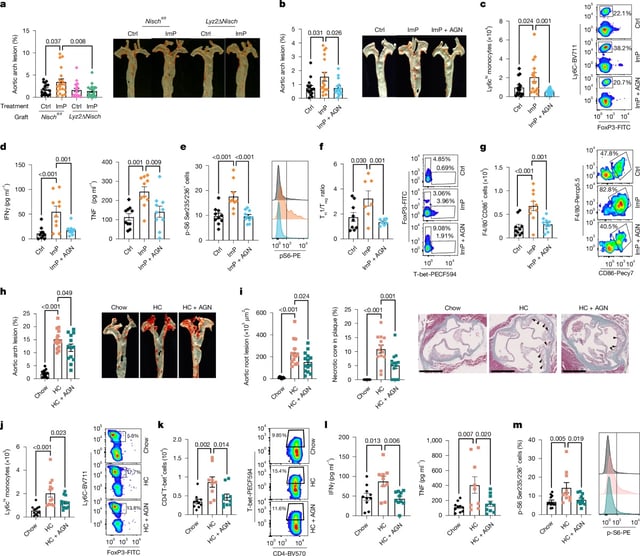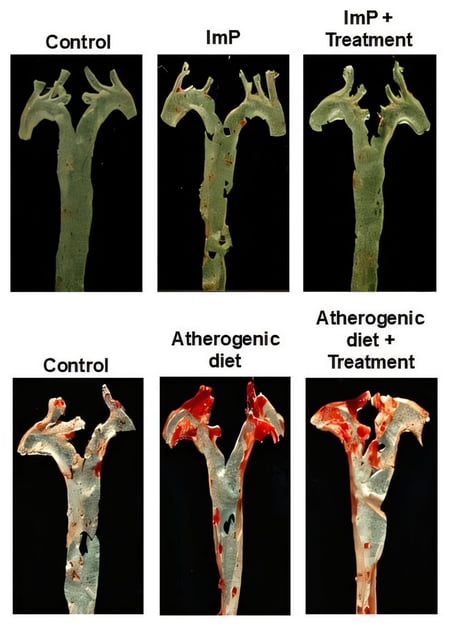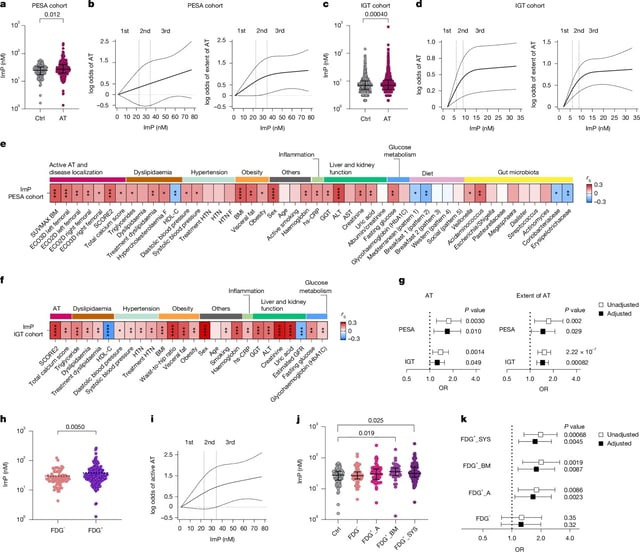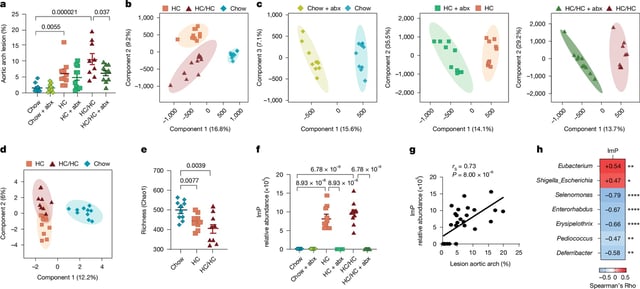Overview
- CNIC researchers identified imidazole propionate (ImP), a gut microbiota–derived metabolite, in the blood of otherwise healthy individuals with subclinical arterial plaques.
- In mouse models, ImP administration induced plaque formation by activating the imidazoline receptor type 1 and driving systemic inflammation without altering cholesterol or glucose levels.
- Pharmacological blockade of I1R fully prevented atherosclerosis development and slowed progression in mice fed a high-cholesterol diet.
- Elevated ImP levels correlated with early active atherosclerosis in human cohorts, highlighting its promise as a non-invasive diagnostic biomarker.
- Teams at CNIC are advancing I1R inhibitors and investigating their combination with cholesterol-lowering drugs to develop novel therapies.



